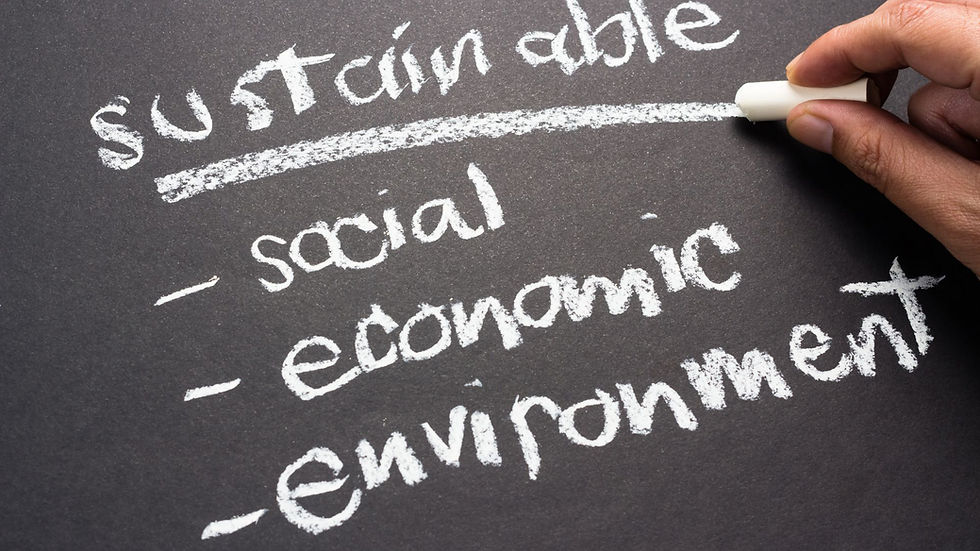How Startup Food Manufacturers Can Build Sustainability from Day One
- Crystal Black-Davis
- Aug 21, 2025
- 2 min read

For early-stage food manufacturers, sustainability can feel like a distant goal—something to focus on after profitability and scale are achieved. But the truth is, integrating sustainable practices from the start isn’t just good for the planet, it’s good for business. Consumers, retailers, and investors increasingly expect brands to show measurable commitments to people and the environment.
At Savvy Impact, we believe sustainability and growth should go hand in hand. Here are practical ways startup food manufacturers can embed sustainability into their business model from the very beginning:
1. Rethink Packaging Early
Packaging is often the first sustainability decision consumers notice. Startups can:
Choose recyclable or compostable materials rather than single-use plastics.
Reduce excess packaging to cut both waste and costs.
Explore refillable or bulk options for long-term scalability.
Even small changes signal to retailers and consumers that your brand is forward-thinking.
2. Source Responsibly
Your supply chain choices carry enormous weight. Consider:
Partnering with farmers and suppliers who follow regenerative or organic practices.
Exploring local or regional sourcing to reduce transportation emissions.
Being transparent about ingredient origins—storytelling here builds trust and loyalty.
3. Optimize Production for Efficiency
Sustainability often starts with eliminating waste in your own kitchen or production facility. Startups can:
Monitor and reduce water and energy usage.
Repurpose byproducts into new products (for example, turning fruit pulp into snacks).
Begin tracking emissions and waste—even simple tracking builds a foundation for future reporting.
4. Align With Certifications That Matter
Certifications like Non-GMO Project, Fair Trade, or Upcycled Certified can elevate your credibility with buyers. While some certifications may be costly at launch, planning for them early positions you to scale responsibly.
5. Build Sustainability Into Your Story
Retail buyers and consumers alike want to support brands with purpose. Make sure your sustainability efforts are:
Visible—communicated clearly on packaging and your website.
Credible—supported by data, not just buzzwords.
Human—connect your mission to the people and communities your business impacts.
The Bottom Line
For food CPG startups, sustainability is no longer a “nice-to-have”—it’s a differentiator that can open doors to retailers, investors, and loyal customers. The earlier you embed sustainable practices, the easier it is to scale them as your brand grows.
At Savvy Impact, we help food companies of all sizes turn sustainability commitments into action. The good news is: you don’t need a massive budget to start. You need intention, creativity, and a willingness to think differently about growth.



Comments